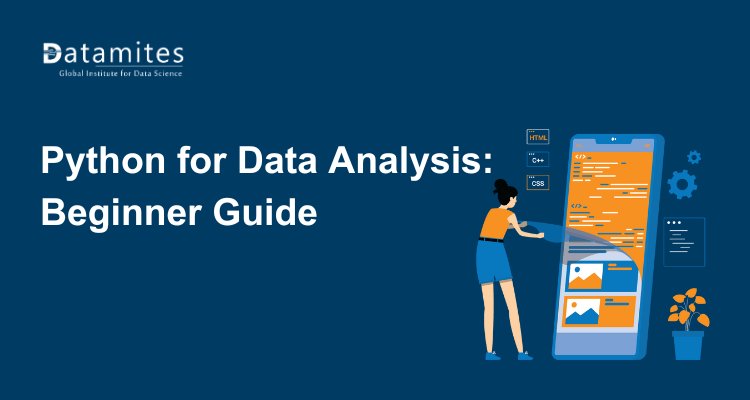How to Become a Quantitative Analyst
Learn how to become a Quantitative Analyst with expert guidance on essential skills, education, certifications like CQF and CFA, and career paths including financial quantitative analyst, quantitative developer, and risk analyst.

In today’s data-driven financial landscape, quantitative analysts often referred to as “quants” play a critical role in shaping investment strategies, managing risks, and driving financial innovation. With the growing reliance on data analytics, machine learning, and predictive modeling, the demand for quantitative finance jobs is expanding across global markets.
Whether you aspire to become a quantitative developer, financial quantitative analyst, quantitative risk analyst, or quantitative strategist, this guide will help you understand what the role entails, what skills are required, and how to build a successful career in quantitative analysis.
What does a quantitative analyst do?
A quantitative analyst uses advanced mathematical, statistical, and programming techniques to solve complex financial problems. Their work revolves around building quantitative models that help businesses price financial instruments, predict market trends, and minimize risk exposure.
Quantitative analysts typically work in investment banks, hedge funds, asset management firms, and financial technology companies, where their analytical insights directly impact trading decisions and risk management strategies.
Some of the key responsibilities of a financial quantitative analyst include:
- Designing and testing quantitative models for trading and risk assessment.
- Developing pricing algorithms for derivatives, bonds, and structured financial products.
- Conducting portfolio optimization and scenario simulations.
- Implementing data-driven strategies using programming languages like Python, R, and C++.
- Evaluating quantitative risk models to assess exposure in volatile markets.
Depending on the specialization, quantitative analysts may hold various roles such as quantitative developer (focused on coding and automation), quantitative risk analyst (centered on risk modeling), or quantitative strategist (developing high-level trading strategies). Each role requires a mix of financial acumen, technical skill and non technical skills for analyst, and mathematical expertise.
Refer to the articles below:
- Data Lakehouse: Transforming Analytics with Unified Data
- The Role of Data Stewardship in Data Management
- Beginner’s Guide to KNIME for Data Analytics
What essential skills are required to become a quantitative analyst
To excel in a quantitative analysis job, one must possess a strong foundation in mathematics, programming, and finance. Employers seek candidates who can integrate technical knowledge with business understanding to drive strategic decision-making. Below are the core competencies essential for aspiring quants:
1. Mathematical and Statistical Knowledge
Quantitative analysts rely heavily on mathematics for model creation and financial forecasting.
Key areas include:
- Probability theory and stochastic calculus
- Linear algebra and differential equations
- Statistical inference and regression analysis
- Time-series analysis and econometrics
A robust mathematical foundation enables quants to develop models that predict market movements and evaluate the pricing of complex derivatives.
2. Programming and Technical Expertise
Programming skills are indispensable for quants, especially those aspiring to become quantitative developers or quantitative strategists. Proficiency in languages like Python, R, MATLAB, C++, and SQL allows professionals to automate data collection, perform quantitative modeling, and implement trading algorithms efficiently.
In addition, knowledge of data analyst tools such as Excel VBA, TensorFlow, and Bloomberg Terminal enhances computational analysis and real-time data processing.
3. Financial and Economic Knowledge
Understanding financial instruments, risk management, and market dynamics is crucial for a financial quantitative analyst. Topics like portfolio management, derivatives pricing, fixed income analysis, and financial markets form the core of a quantitative finance job.
A well-rounded quant combines technical precision with an understanding of market psychology and macroeconomic indicators to make data-backed financial predictions.
4. Analytical and Problem-Solving Skills
Quants are problem solvers who use logic and creativity to design models that can predict uncertainty. Their ability to dissect complex data sets and identify actionable insights is what makes them invaluable in quantitative finance jobs. Analytical thinking also aids in interpreting financial patterns, reducing risk exposure, and optimizing returns.
5. Communication and Presentation Skills
Though technical proficiency is crucial, the ability to communicate insights effectively is equally important. A certified quantitative analyst must translate complex models into understandable strategies for portfolio managers, traders, and stakeholders. Clear communication bridges the gap between data analysis and business decisions.
How to become a quantitative analyst
Building a career as a quantitative analyst requires a blend of education, skill development, and practical experience. The pathway can vary based on specialization, but the following steps provide a clear roadmap to becoming a professional in quantitative finance.
1. Obtain the Right Educational Background
A strong academic foundation is the cornerstone of a career in quantitative analysis. For professionals aiming for higher recognition, certifications like Certified Quantitative Analyst (CQF) or Chartered Financial Analyst (CFA) add credibility and improve job prospects in competitive markets.
2. Develop Technical and Programming Skills
Employers in quantitative finance jobs value proficiency in programming and data analysis.
- Python and R for data analytics and statistical modeling.
- C++ and Java for high-frequency trading algorithms.
- SQL for managing financial databases.
Additionally, machine learning and AI-based modeling are becoming integral in modern quantitative analysis, enhancing predictive accuracy and automation in financial systems.
3. Build Financial Domain Knowledge
Understanding the mechanisms of financial markets, investment strategies, and risk management is crucial for a quantitative risk analyst. Learning about equity markets, derivatives, bonds, and portfolio optimization allows you to apply models effectively in real-world financial scenarios.
4. Gain Practical Experience
Hands-on experience is crucial for applying theoretical knowledge to real-world scenarios. Engaging in internships at investment banks or hedge funds, research projects, and Kaggle competitions helps strengthen practical skills and showcase analytical expertise in quantitative modeling.
Real-world exposure helps build confidence and strengthens your profile for quantitative analysis jobs.
5. Build a Professional Portfolio
A strong portfolio distinguishes you in a competitive job market. Include:
- Financial data modeling projects using real datasets.
- Coding samples or algorithmic trading simulations.
- Published research papers or blogs on quantitative finance.
- Platforms like GitHub, LinkedIn, and Kaggle can display your technical competence and analytical creativity to potential employers.
6. Earn Relevant Certifications
Professional certifications validate your expertise and commitment in quantitative finance. Along with globally recognized credentials like Certified Quantitative Analyst (CQF), Financial Risk Manager (FRM), and CFA Charter, earning IABAC and NASSCOM-accredited certifications further strengthens your industry credibility and career prospects.
Such certifications not only boost credibility but also open doors to senior quantitative strategist or leadership roles in top-tier institutions.
7. Network and Stay Updated
Quantitative finance is an ever-evolving field influenced by market dynamics and technological innovation. Joining professional forums, attending conferences, and networking with industry experts keeps you informed about emerging trends like algorithmic trading, machine learning, and blockchain in finance. Active engagement in the finance community enhances visibility and career opportunities.
Refer to the articles below:
- Data Analyst Course Fee in Bangalore
- How to Become a Data Analyst in Bangalore
- Data Analyst Career Scope in Bangalore
What’s the roles and responsibilities of quantitative analyst
A career as a quantitative analyst opens doors to a variety of specialized roles in the finance and technology sectors. Key positions include:
- Develop Financial Models: Create mathematical and statistical models for pricing, trading, and risk management.
- Data Analysis: Analyze large datasets to identify trends, correlations, and market opportunities.
- Risk Assessment: Evaluate and manage financial risks using quantitative techniques and stress testing.
- Algorithm & Strategy Development: Build algorithms and support investment or trading strategies.
- Reporting & Communication: Present complex insights clearly to stakeholders and assist in portfolio optimization.
- Research & Strategy Development: Conduct research on market behavior, financial products, and emerging trends to guide business strategy.
Hedge funds, investment banks, asset management firms, and FinTech companies offer roles in data modeling, risk management, algorithmic trading, and portfolio optimization. With growing demand for quantitative analysis jobs, skilled professionals enjoy strong career growth, competitive salaries, and opportunities across finance and emerging sectors. The US Labor Department projects an 6% growth in demand for financial analysts from 2024 to 2034, with around 29,9000 annual job openings, making now an ideal time to pursue a career as a data analyst in this rapidly evolving field.
Salary and Future Prospects
A quantitative analyst career promises impressive financial rewards and long-term stability.
The Glassdoor, specifies that the quantitative analyst in India can expect annual salaries ranging from ₹12 LPA to ₹24 LPA.
- The quantitative analyst in the United States can expect annual salaries ranging from $97T - $1L/yr. (Source: Glassdoor)
- Quantitative Analyst salaries in the United Kingdom range from £57T - £1L/yr. (Source: Glassdoor)
- Quantitative Analyst salaries in the United Arab Emirates range between AED 2T - AED 25T/mo. (Source: Glassdoor)
- Quantitative Analyst salaries in Australia lie between A$90T - A$1L/yr. (Source: Glassdoor)
- Quantitative Analyst salaries in South Africa ranges between ZAR 5L - ZAR 7L/yr.(Source: Glassdoor)
Senior roles like quantitative strategist or quantitative developer offer higher salaries, while AI, deep learning, and big data are transforming quantitative finance, creating opportunities for professionals combining financial expertise with technology.
In India, cities like Mumbai, Bengaluru, Pune, and Hyderabad are emerging as major hubs for quantitative finance jobs, offering lucrative packages and global exposure. Internationally, quants are highly sought after in financial centers like New York, United States, Hong Kong, and Singapore.
Refer to the articles below:
- Data Analyst Career Scope in India
- Mastering Data Analytics in India
- What would be the Data Analyst Course Fee in India
Becoming a quantitative analyst demands strong analytical, mathematical, and programming skills with a passion for finance and technology. Through data analyst course in Bangalore learners will get hands-on projects and certifications, you can pursue roles like financial quantitative analyst, quantitative developer, or risk analyst in the evolving, innovation-driven world of quantitative finance.
DataMites Institute distinguishes itself by providing a comprehensive selection of high-demand IT programs, including Data Science, Machine Learning, Artificial Intelligence, Python, IoT, and Data Engineering. The institute’s curriculum focuses on experiential learning, enabling students to acquire practical knowledge through real-world projects, certified internships, and globally recognized credentials accredited by IABAC and NASSCOM FutureSkills. In addition, students receive dedicated placement support to enhance their career prospects.
Offering both classroom and online training modes, DataMites has built a strong footprint across India. With data analyst courses in Ahmedabad and training centers in Bangalore, Mumbai, Chennai, Ahmedabad, Coimbatore, Pune, Delhi, Jaipur, Kochi, and Kolkata, the institute provides flexible learning pathways that equip learners with industry-relevant skills and prepare them for successful careers in data analytics.





